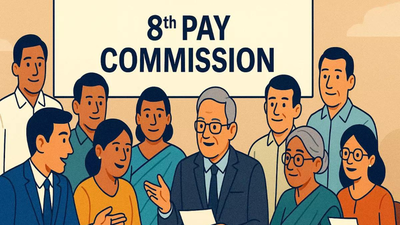Why insurance sector is E-commerce firms’ favourite poaching ground

India’s insurance sector has increasingly become a soft poaching ground for e-commerce, quick commerce, and logistics firms, which are hiring aggressively ahead of the festive season in anticipation of a sales surge following last week’s goods and services (GST) rate cuts.
The insurance industry experiences very high attrition rates at junior levels, as its young workforce are attracted to these new-age sectors, lured by hefty bonuses, easier sales targets and relatively less-stressful job conditions, recruiters and industry experts said.
“Insurance companies’ sales staff (mainly employees doing retail sales ) are leaving for e-commerce and digital platforms because these roles often offer higher and more structured/predictable commissions or incentives, faster payouts, and stable fixed pay compared to the target-heavy, commission-driven structure in insurance,” said Sudhish Ramteke, associate director, Anand Rathi Insurance Brokers.
Large e-commerce companies have begun bulking up their seasonal workforce. Amazon India rolled out 150,000 jobs across fulfilment centres, sort centres and last-mile delivery stations. Walmart-owned Flipkart has opened up 220,000 direct and indirect on-ground roles, including dark store workers, as it expands operations under its quick-commerce arm Minutes beyond the nearly 20 cities it currently serves.
The rationalization of goods and services tax (GST) regime announced last week is expected to boost permanent and temporary recruitment, as the retail sector looks to pass on the benefits of lower tax rates to the customers. The GST Council last week consolidated the GST rates into two slabs of 5% and 18% by merging the 12% and 28% rates, with a 40% levy on the so-called sin and luxury items. This move is likely to trigger a hiring surge, with retail and e-commerce companies gearing up to boost sales—especially after a subdued summer season that saw limited demand for electronics items.
The new GST rates come into effect on 22 September.
“Benefits like flexible work hours, simpler performance goals, and lower stress make e-commerce jobs more attractive, especially for younger recruits seeking quick earnings and work-life balance,” Ramteke pointed out.
But what makes the insurance sector particularly vulnerable to poaching?
Recruiters said that the training given to the insurance agents is such that their equations with the customers is beyond “transactional” and are “persistent”. These qualities come in handy during the highly competitive festive season that lasts from August to December-end.
“They sell multiple products like loans, insurance, and investments, which are not easy to explain or convince people to buy. A large part of their selling cycle involves building trust, handling rejections, and selling in a consultative way, rather than just being transactional,” observed Neeti Sharma, chief executive officer at TeamLease Digital.
Recruitment and staffing firm TeamLease’s data shows that over the next few months, e-commerce and logistics companies will look at hiring almost 25-30% additional headcount. Quick commerce is expected to see a 35-40% surge in roles such as sales, delivery, warehouse and customer support. E-commerce companies are offering incentives such as surge-time bonuses, attendance-linked perks, and per-delivery payouts, which are 15–20% higher compared to last year, not just to woo new employees but also to stem attrition.
Sunder Natarajan, chief human resources officer at IndiaFirst Life, told Mint that the highest risk of attrition occurs within the first six months—particularly among individuals who start their career in the insurance sector. While workforce stability usually improves after a few more quarters following the initial six months, as employees see their first appraisal cycle and receive variable pay, many early exits are driven by opportunities in competing sectors.
“Among third-party agents, there’s a natural shift, too. Many manage multiple portfolios—from mutual funds to real estate—and some are now drawn to e-commerce as a way to expand earnings,” said Natarajan. Third-party agents in this case are employees who work for the insurance firm, but are on the payroll of a hiring vendor.
Recruiters also pointed out that young employees in the 18-25 age group are more keen to join the e-commerce and associated sectors today.
Aditya Narayan Mishra, managing director at recruitment firm CIEL HR Services, pointed out that insurance agents face new challenges in achieving their targets. “In the insurance sector, the customer often accesses insurance on apps and signs-up, which makes it tougher for the fleet-on-street agents to meet their target.” The e-commerce industry does not have that challenge, as the business model is inherently digital.



